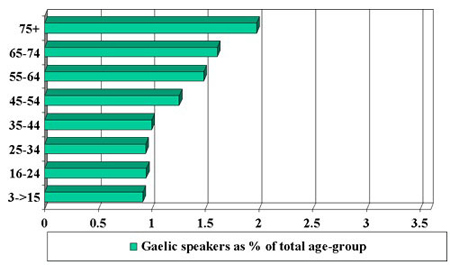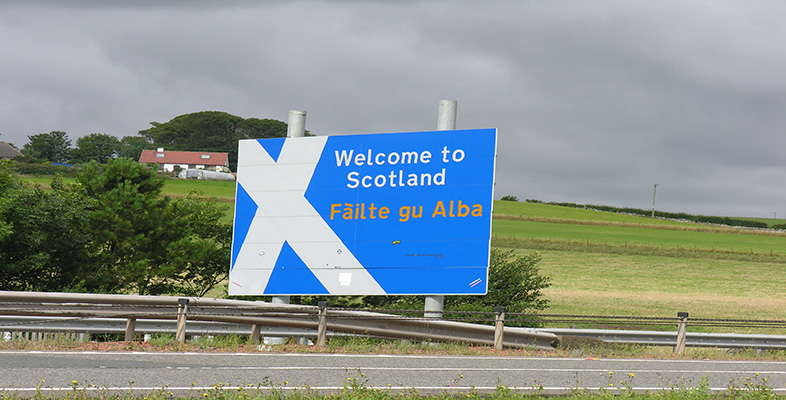3.1.2 The big picture
There were 58,652 people in Scotland who spoke Gaelic at the time of the 2001 National Census, while a further 33,700 could understand the language.
Of the Gaelic speakers, 33,315 (57 per cent of the total) lived in the historical Gaelic heartland of the Highlands and Islands. The Western Isles (15,723 speakers) had the highest concentration at 62.3 per cent, with several parishes at or over 80 per cent. The Isle of Skye (3,999) was 35.5 per cent Gaelic speaking in 2001, with one parish at over 70 per cent. Argyll & Bute and the Highland Council area (minus Skye) accounted for the most of the remaining 13,593, including 2,820 in the City of Inverness. Gaelic is in everyday use in many of these communities, particularly in the Western Isles and Skye.
| Area | Gaelic |
|---|---|
| Eilean Siar (Western Isles) | 15,723 |
| Skye & Lochalsh | 3,999 |
| Rest of Highland (Mainland) | 8,670 |
| Argyll & Bute | 4,168 |
| Other main Gaelic areas | 755 |
| Total, Gaelic areas | 33,315 |
There were 25,337 Gaelic speakers outwith the traditional Gaelic area in 2001. They could be found in all parts of Scotland, with significant concentrations in cities such as Glasgow (5,731), Edinburgh (3,132) and Aberdeen (1,420). Many of these speakers also use Gaelic on a regular basis, both in social and more formal contexts, in effect forming loosely-knit sub-communities within these cities.
| Area | Gaelic |
|---|---|
| Total, Gaelic areas | 33,315 |
| Rest of Scotland | 25,337 |
| Total | 58,652 |
A detailed map showing the percentage of Gaelic speakers in all parishes in Scotland is contained in the General Register Office (GRO) Report on the 2001 Census and can be accessed here [Tip: hold Ctrl and click a link to open it in a new tab. (Hide tip)] .
The average age of the Gaelic speakers recorded in the 2001 Census, at 45.9 years, was 18 per cent higher than the Scottish average of 39. This age imbalance is also evident from comparison of the following age bands:
| Age group | Gaelic speakers |
|---|---|
| 0-20 years | 10,158 |
| 45-64 years | 16,855 |
This graph, compiled by research agency Sgrùd, sets out the situation in graphic form.

Most of the older Gaelic speakers are native speakers who have learned the language in the home and community, usually (although not in all cases) in the Highlands and Islands. Among the younger generation, the majority now learn the language in school, especially through Gaelic medium education: they can be found throughout Scotland. There are also a growing number of adult learners, including many non-Scots.
